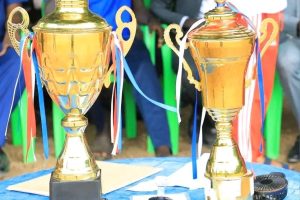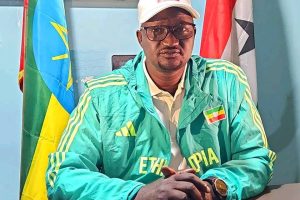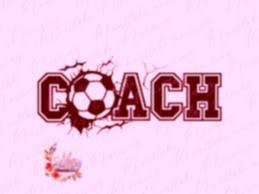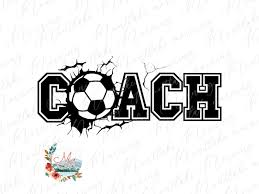By William Davison,
All members of the Nuer ethnic group, the troops of the so-called White Army who gathered by the Sobat River in eastern South Sudan are the strike force in rebel leader and former Vice President Riek Machar’s campaign against the government in Juba, the capital. They’re planning to march on Malakal, capital of Upper Nile state, and then attack the Paloch oil field, a key source of revenue for President Salva Kiir’s military.
While Machar sits in his bush hideout coordinating his rebellion’s positions on peace talks in the Ethiopian capital, Addis Ababa, and trying to force Kiir into concessions, members of the White Army have more basic desires. They’re fired by reports of widespread killings of Nuer after Kiir, an ethnic Dinka, accused Machar of attempting a coup d’etat in December. New York-based Human Rights Watch said in January that as many as 300 Nuer were massacred on Dec. 16 in Juba.
“We don’t fight against Salva Kiir because of food, we don’t fight against Salva Kiir because of water, we don’t fight because of oil,” Dak Chany, a 37-year-old father of two who has horizontal scars on his forehead that were part of his initiation into adulthood, said in an interview on March 26 in Nasir, about 190 kilometers (118 miles) east of Malakal. “We fight against him because he killed our brothers, fathers, mothers.”
Militia Violence
The violence threw the world’s newest nation into civil war, killed thousands of people and forced at least 860,000 more to flee their homes, according to the United Nations. China National Petroleum Corp., India’s Oil & Natural Gas Corp. (ONGC) and Petroliam Nasional Bhd., the main producers of South Sudan’s oil, evacuated employees because of the fighting.
The country, which gained independence from Sudan in July 2011, is producing about 160,000 barrels per day of oil from fields in Upper Nile, according to the government. The state produces Dar Blend, a low-sulfur crude prized by Japanese buyers as a cleaner-burning fuel for power plants.
Even before the national crisis exploded, Nuer militias and fighters from the Murle group in Jonglei state carried out massacres of each other’s civilians in a battle over cattle and land rights, according to the UN.
Control ‘Difficult’
The White Army is “definitely difficult to control, their discipline is wanting,” Machar, 60, said in a March 27 interview, sitting on an office chair next to a table with his satellite phone, a tablet and a book on failed states in the shade of a tree alive with weaver birds. “We hope we will improve on that with time.”
White Army leaders and Machar have different objectives, said John Young, author of The Fate of Sudan: The Origins and Consequences of a Flawed Peace Process. Machar wants to be a national rather than ethnic leader, and attacking the oil fields in Upper Nile state is part of his strategy to cripple Kiir’s sources of revenue and win concessions, he said.
“He understands that you have to make compromises,” Young said in a March 30 interview by phone from Vancouver. “His military commanders don’t look at the world that way. They want revenge and they want the Nuer to assume a governing role in a post-Salva government. To try and balance those perspectives is going to be very difficult.”
The White Army fighters, who may number as many as 50,000, comprise the bulk of the insurgents in Upper Nile state, the only remaining oil-producing region in South Sudan after wells in neighboring Unity shutdown because of the conflict, said the rebel commander in the area, Major-General Gathoth Gatkuoth.
Target Killings
Underdevelopment, corruption and the targeted killings are the reasons for the Nuer rebellion, rather than Machar’s “democratic war” against Kiir, he said in an interview in Nasir on March 27.
“You can disagree with anybody rivaling you,” Gatkuoth said. “But you cannot kill one tribe.”
The White Army emerged in the early 1990s when Machar and Lam Akol, who’s from the Shilluk ethnic group, split from John Garang, the former leader of the Sudan People’s Liberation Movement who died in a helicopter crash in 2005. The SPLM has ruled South Sudan since independence.
The White Army’s name derives from the practice of Nuer cattle herders smearing themselves with pale ash to ward off insects.
Hip-Hop
Gun-toting White Army fighters are rarely out of sight in Nasir, where American hip-hop music pumping out of aging speakers as young men in knock-off soccer shirts hang out on the side of its dirt roads. Others sit in the shade of wooden shacks drinking sweet tea served by women in headscarves.
Piles of Nyala cigarettes from Ethiopia reveal a trickle of trade with the Horn of Africa nation, whose border lies 30 kilometers away along the Sobat River.
Some gunmen ride around in a handful of scarred Toyota pick-up trucks. After dusk on the town’s periphery, howling dogs and the roar of a generator from a UN compound are punctuated by air-shots from exuberant militiamen.
Gatkuoth said his brief visit to Nasir from the front line is to mobilize the fighters for the offensive. They’ll have to advance on foot because the insurgents “don’t have any money” for the rebellion, he said.
“The rest who are here should follow us instead of play here,” he said. “We are just depending on the local resources of our people.”
Rachel Nyachop, 47, said she came from Malakal and is in Nasir looking for food. She’s lost three sons in this war, which she is adamant should continue.
“The war will not be stopped until we kill all Dinka, including the children,” she said.
To contact the reporter on this story: William Davison in Nasir, South Sudan at wd*******@*******rg.net
To contact the editors responsible for this story: Antony Sguazzin at as*******@*******rg.net Karl Maier, Paul Richardson






